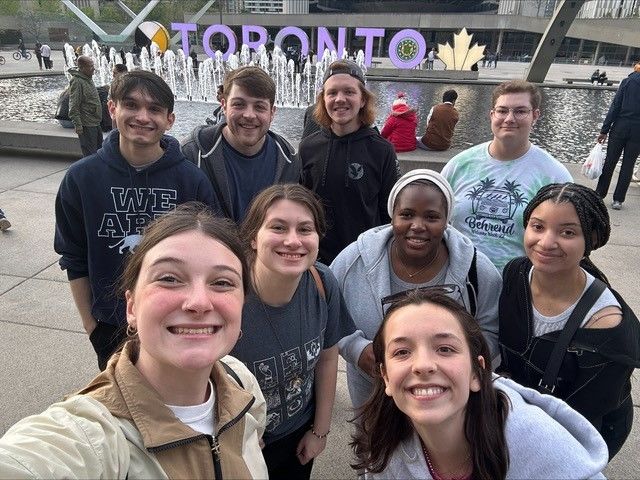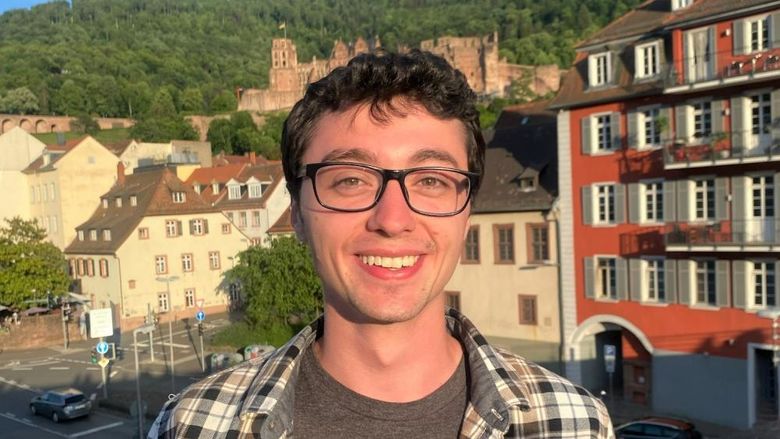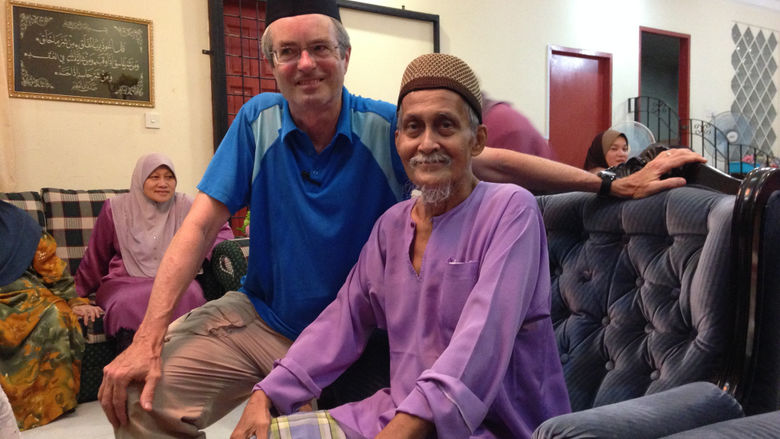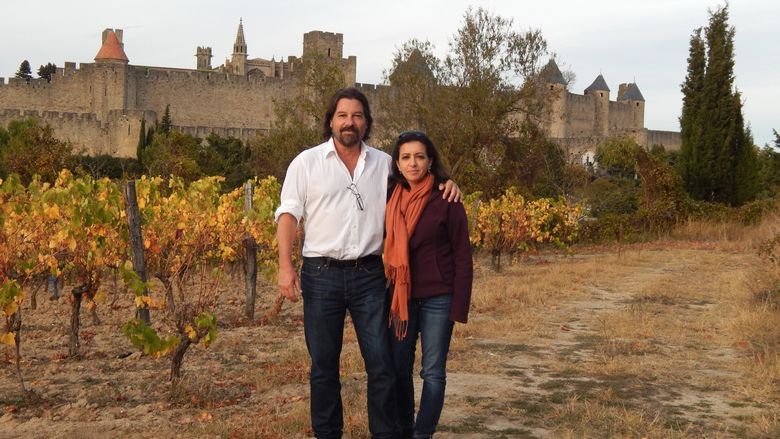
Nine Penn State students spent much of the summer in Toronto, learning about government systems, cultural differences and economics. They visited CN Tower, the Provincial Parliament and Fort York, a key battle site in the War of 1812.
ERIE, Pa. — Here’s a Penn State Behrend travel tip: When visiting Toronto — say, in a group led by Robert Speel, an associate professor of political science — don’t ask for the bathroom.
“In Canada, when in public, you call it a washroom,” said Speel, who team-teaches a summer course, North American Politics, with Greg Inwood, a faculty member at Toronto Metropolitan University.
At Canada’s Wonderland, an amusement park in Toronto, a few of his students forgot. That drew some odd looks from the park’s staff.
Speel has taught the summer course since 2006. The program focuses on comparative politics: government systems, cultural differences, and varying approaches to economics. Students take on complicated topics, including gun control, abortion, medically assisted suicide and the legalization of marijuana.
“The hope is to get students thinking about how other countries do things differently,” Speel said. “To learn it while in Canada, alongside Canadian students, and with a Canadian teacher, that’s an ideal form of comparative politics.”
This year, nine Penn State students stayed at the Toronto Metropolitan International Living and Learning Centre. They attended classes with 20 Canadian university students.
For some, the study-abroad option was a first opportunity to travel to a new country.
“A classmate explained it best, saying, ‘Canada is like someone drawing America from memory,’” said Carson Rounds, a senior in the political science program. “It looks the same until you see the differences.
“I liked that analogy,” Rounds said, “because being in Canada felt like being in the United States — until it didn’t.”
Between classes, the group explored Toronto, a city with 3 million people. Funding from Barbara Welton, an alumna of the program, helped cover the cost of several excursions, including visits to CN Tower, the Provincial Parliament and Fort York, a key battle site in the War of 1812. The students also attended a Blue Jays game.
In-class discussions brought new perspectives — and a different appreciation for home.
“I have a better view of America,” Rounds said. “Yes, our system can be frustrating at times, but when you learn why the system is designed that way, you begin to appreciate it more.”
Canadian students often know more about American politics than Americans know about their own system, Speel said. The Toronto course is designed to change that.
“It made me view both Canada and the United States differently,” said Kendall DeMarco, a junior in the political science program. “I was relatively ignorant of Canadian politics, and even more so about how the country was run. Learning about their laws, procedures and government structure also led me to view the U.S. differently. A big factor was hearing Canadian students’ perspectives on America.”
Some of the class discussions were tense, Rounds said, but he saw value in being able to talk through an issue with students from other backgrounds.
“We must be able to talk about issues without prejudice,” he said. “No one opinion is right or wrong, so we must be able to hear the other side with reason.”
After they adjusted to some minor differences — not having mini refrigerators in their residence halls, for example, and Hulu not being available in Canada — the students came back from the experience with new views on the larger world.
“It gets them to think more about what other countries might do better, or differently,” Speel said. “It also helps them appreciate things about the United States.”
Robb Frederick
Director of Strategic Communications, Penn State Behrend




